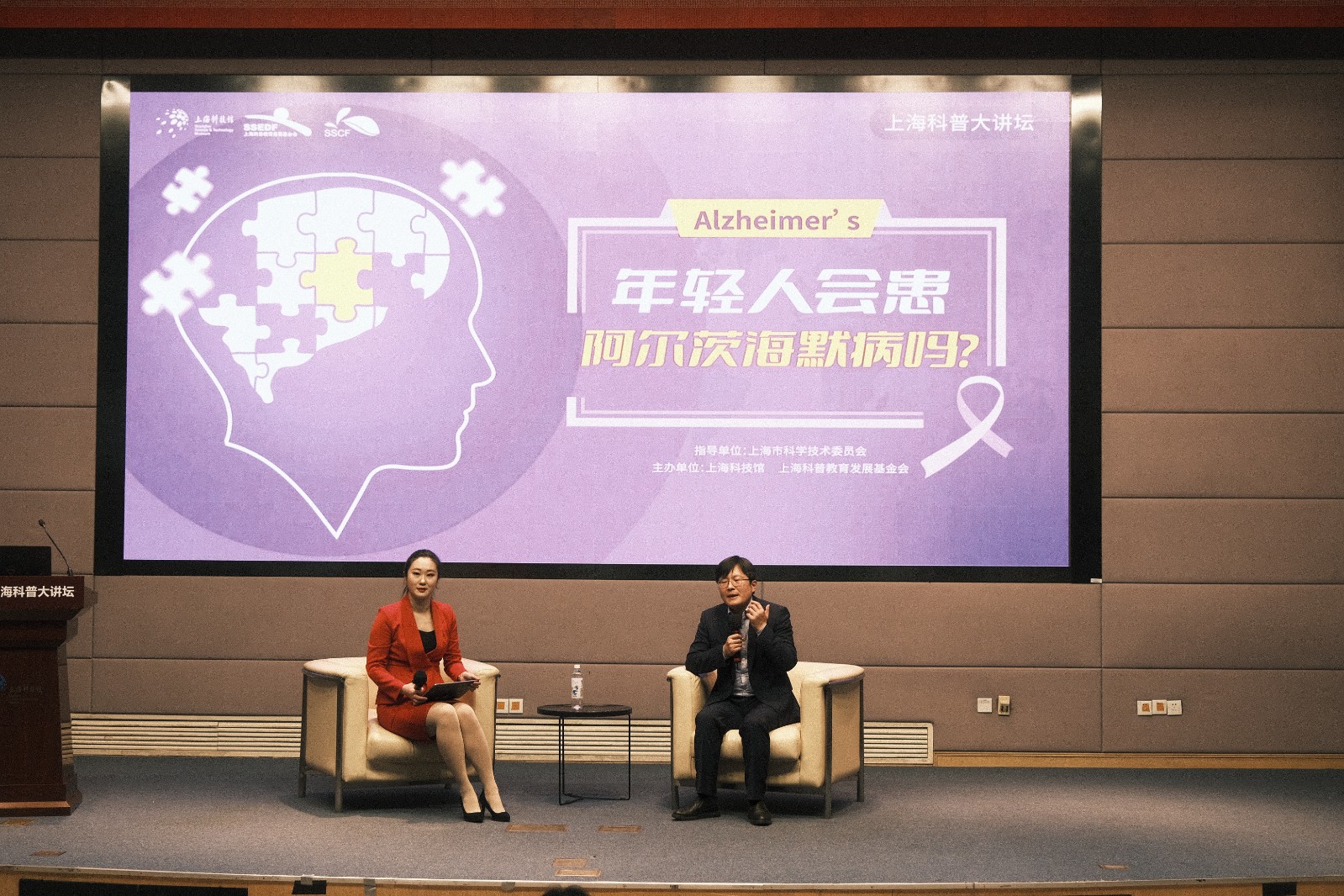Shanghai Science Communication Forum Addresses Early-onset Alzheimer''s Disease

Recently, a case of "a 19-year old patient with early-onset Alzheimer's disease" reported in China drew much attention from the society. On February 26, 2023, Shanghai Science Communication Forum was honored by the presence of Yu Jintai, Deputy Director of the Neurology Department of Huashan Hospital of Fudan University and Cognitive Disorder Research Supervisor of National Center for Neurological Diseases, who gave deep insight into Alzheimer's disease, explained the current situation of early-onset Alzheimer's disease and the preventive methods, and guided the public to correctly understand Alzheimer's disease.
Yu Jintai told the audience the history of discovery of Alzheimer's disease. He mentioned that Alzheimer's disease is the most typical dementia, and was even once stigmatized as "mental disease". As the first patient was diagnosed, however, people have gained deeper and deeper understanding of this disease. According to Yu Jintai, the Alzheimer's disease that happens to a patient younger than 65 is deemed early-onset Alzheimer's disease. However, the public need not panic about that, because the patients younger than 40 are very rare and the probability of developing that disease is extremely low, and most people only suffer benign amnesia. However, early-onset Alzheimer's disease is very detrimental and thus must not be neglected, so understanding this disease will help distinguish it from benign amnesia.
Is it possible to prevent and cure Alzheimer's disease? According to Yu Jintai, now there is no specific therapy that can prevent or reverse the progression of Alzheimer's disease, but the scientists are working hard to develop the drugs to improve the condition and delay its occurrence and progression. For the patient, drug therapy is only a small part of the solution, while good care and comfortable living environment are more important. For average people, maintaining a healthy lifestyle and controlling the vascular risks are now effective ways to "counteract" the disease.






